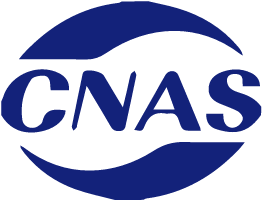
basic introduction
Soil is an important part of the environment. Soil environmental monitoring refers to determining the environmental quality (or pollution degree) and its changing trend by measuring the representative values of factors that affect the soil environmental quality. Generally speaking, soil monitoring refers to soil environmental monitoring, which can be generally divided into regional soil background, farmland soil environment, soil environmental assessment of construction projects, soil pollution accidents and other types of monitoring, including site sampling, sample preparation, analysis methods, and characterization of results , Technical statistics such as data statistics and quality evaluation.
Soil pollution can be roughly divided into inorganic pollutants and organic pollutants. Inorganic pollutants mainly include acids, alkalis, heavy metals, salts, strontium compounds, compounds containing arsenic, selenium, fluorine, etc.; organic pollutants mainly include organic pesticides, phenols, cyanide, petroleum, synthetic detergents, urban sewage , Harmful microorganisms brought by sludge and manure.
Soil testing project
■Soil, solid waste
Moisture, pH, lead, cadmium, mercury, arsenic, copper, zinc, nickel, chromium, selenium, hexadecimal, DDT, cation exchange capacity, organic matter, organic carbon, total nitrogen, total phosphorus, potassium, sodium, hydrolyzed nitrogen, Available phosphorus, available potassium, ammonium nitrogen, ammonia nitrogen, nitrate nitrogen, nitrate nitrogen, nitrite nitrogen, total salt content, total water soluble salt, potassium ion, calcium ion, sodium ion, magnesium ion, chloride ion, Sulfate, bicarbonate, carbonate, water-soluble and acid-soluble sulfate, particle composition (mechanical composition), micro-aggregate composition, bulk density, silicon, loss on ignition, available sulfur, available silicon, available boron, available zinc , Manganese, iron, copper, exchangeable calcium, magnesium, exchangeable potassium, sodium, total exchangeable base, base saturation, calcium carbonate, petroleum (mineral oil), sulfide, volatile phenol, cyanide, Fluoride, hexavalent chromium, radon, iron, manganese, calcium, magnesium, aluminum, barium, cobalt, silver, molybdenum, antimony, vanadium, boron, benzo (a) pyrene, volatile organic compounds, semi-volatile organic compounds, and more Chlorinated biphenyls, aldrin, dieldrin, endrin, epoxy heptachlor, heptachlor, organophosphorus (quick phosphorus, formazan, diazophos, isoprenaline, methyl parathion , Moth phoxim, bromothion, rice Fengsan, phoxim), etc.
■Sludge
Sludge moisture content, pH, cadmium, mercury, lead, chromium, arsenic, nickel, zinc, copper, boron, mineral oil, phenol, cyanide, total organic matter, total alkalinity, total nitrogen, total phosphorus, total potassium Wait
Soil testing category
● Soil monitoring
● Sludge monitoring
● Marine sediment monitoring
● Solid waste monitoring
● Environmental certification and testing of non-pollution agricultural products and green food
● Environmental monitoring of heavy metals in farmland soil
● Soil environmental assessment of construction project...
Our advantage
1. With a professional qualification and experienced expert technical team, we can provide you with professional consultation and services.
2. Have advanced laboratory equipment to ensure the accuracy and reliability of test data.
3. As a third-party testing and certification organization trusted by customers worldwide, we are your certificate of quality.


BSCI certification is an abbreviation of BusinessSocialComplianceInitiative, and Chinese is called business social standard certification. BSCI is an organization that advocates the business community to abide by social responsibility. At the same time, it is a non-profit organization.

CMA, the name is \"China Metrology Accreditation\", the abbreviation of \"China Metrology Accreditation\" in English. According to the provisions of Article 22 of the Metrology Law of the People’s Republic of China: “The product quality inspection agency that provides notarized data to the society must be evaluated by the metrological administrative department of the people’s government at or above the provincial level for the capability and reliability of metrological verification and testing. Qualified.\"

Laboratory accreditation is a third-party certification that CNAS has the ability to perform specific testing and calibration work for testing and calibration laboratories.
Soil is an important part of the environment. Soil environmental monitoring refers to determining the environmental quality (or pollution degree) and its changing trend by measuring the representative values of factors that affect the soil environmental quality.
Get a quote